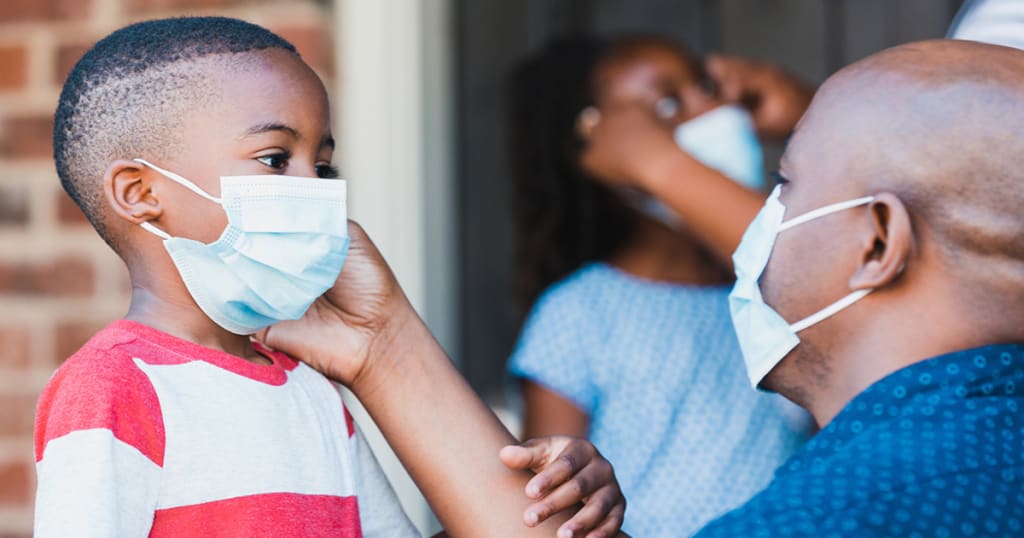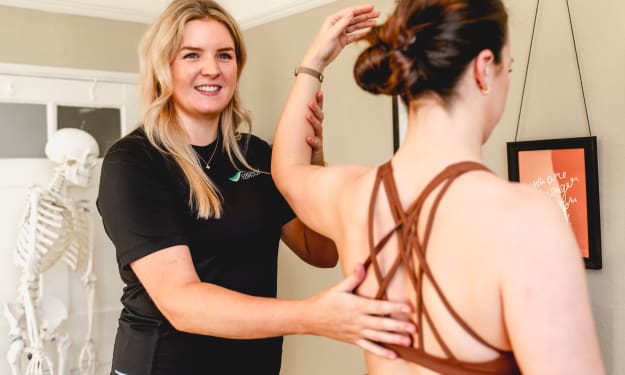
The CDC has loosened guidelines for mask wearing.
While the update means COVID-19 cases are lower, some people may feel anxious about removing their masks.
There are ways to ease your anxiety around taking your mask off.
Now that 70 percent of Americans can stop wearing masks indoors, according to guidelines from the Centers for Disease Control and Prevention (CDC), it seems the country is moving in the right direction when it comes to the pandemic.
“It’s clear that COVID is receding, but it’s not gone, and it never will be gone. Even if we move from pandemic to endemic, it will be as though we have a truce with this virus,” Dr. William Schaffner, professor of preventive medicine and infectious diseases at Vanderbilt University Medical Center in Nashville, Tennessee, told Healthline.
He anticipates that COVID-19 will continue to circulate but at levels that won’t put stress on the healthcare system disproportionately. “COVID will cause some illness, and that does lead us to this notion of how free or carefree we should be,” said Schaffner.
For those who are young and healthy, he said, dropping the mask makes sense right now. But those who are older, have an underlying health condition, or are immunocompromised may need to wear a mask on a regular or sometimes selected basis.
Additionally, people who care for or live with a person who is at risk for complications from COVID-19 may want to continue masking.
It’s natural to feel anxious taking off the mask
For those thinking about going maskless, Schaffner said feeling anxious is natural.
He compares it to patients he’s treated who were in the intensive care unit and monitored constantly. When they improved and moved to a regular floor of the hospital, he said that they often became anxious.
“There can be anxiety if they can’t see or hear the beeping of their heartbeat regularly. So, there is a transition anxiety that is a combination of exhilaration because they’re getting better… but worry because they’re not being monitored as carefully. It takes time sometimes for people to make that adjustment to the less secure environment,” he said.
Sanam Hafeez, PsyD, neuropsychologist and director of Comprehend the Mind, said that after 2 years of living with some form of mask mandate, it became second nature to many people.
“The Omicron variant recently peaked and many became used to being extra vigilant once again. While not everyone may have felt 100 percent comfortable riding a bus, subway, going to see a movie, or grocery shopping, the mask provided a level of security, protection, and sense of control that will diminish now,” Hafeez told Healthline.
For those at higher risk from COVID-19 complications, she said that even if they have the option to wear a mask, knowing that others don’t have to leaves them more vulnerable.
“Without the law on their side, it puts them in a situation where they don’t have any power to take a stance. Their choice is either to wear a mask and be uneasy or to stay home and miss things that might be essential for their livelihood, their health, or their children’s needs and well-being,” she said.
Until COVID-19 numbers go down even more significantly, Hafeez said it’s understandable why immunocompromised individuals will face greater anxiety and have a tougher situation to navigate than others.
Dr. Georgia Gaveras, chief medical officer and co-founder of Talkiatry, added that changing guidelines around when to wear a mask and when to not can cause confusion.
“Two years later, we’re still being encouraged by the media to wear masks in all public spaces, and it sends a mixed message. Coupled with already anxious people, it can be a recipe for even greater anxiety,” she told Healthline.
How to navigate going maskless
If you’re ready to ditch the mask but feel anxious about doing so, the following tips from experts may help.
Understand anxiety
Anxiety, in general, is fear of the unknown that initiates ruminating about the future and contemplating “what if” scenarios. It can also be fear of losing control, explained Hafeez.
“For some people, being in a situation where everyone was mandated to be masked gave them a sense of order and control. Use logic to get a grip on the situation [now],” she said.
Gaveras noted that anxiety can be a reasonable and protective response.
“It’s what made us cautious and gave us the internal feeling that wearing a mask was something that we needed to do to keep ourselves and our loved ones safe,” she said.
Talk with your doctor
If you’re uneasy, reach out to your doctor, who can explain why you are or aren’t safe taking off the mask.
“If you have trusted friends and family members with whom you can share your concerns, that can help alleviate anxiety, too,” said Schaffner.
Get vaccinated and boosted
Vaccination is still the best defense against COVID-19.
“Take your power by making sure you have your booster shots and are taking the best care of your health in general. Remember that if you are fully vaccinated and boosted, the chances of having very serious consequences or dying from COVID-19 have proven very slim,” said Hafeez.
Look at the science
As the CDC bases its guidelines on science, Gaveras suggested taking in the science to understand why the mask decision was made.
“Science told us wearing masks was necessary. Science is now telling us that vaccines and new mutations are making COVID less dangerous to most people, and we need to trust that,” she said.
“The trends in infections and illness are moving in the right direction, even if places are being less restrictive and mask mandates are being lifted.”
Remove masks gradually
Expose yourself gradually to places or situations that are making you nervous, and build a hierarchy from least threatening to most threatening, suggested Hafeez.
Schaffner agreed. “Maybe first don’t wear it walking around outside. Or don’t wear it to the grocery store, but go to the store early when fewer people are there. Or pick circumstances where you feel more comfortable without it,” he said.
Keep the mask on, if needed
If COVID-19 case numbers in your area are still high or if they go up, remember that you can still wear a mask.
“There is no law against the wearing of masks. You have the option to stay out of many events/places that you deem unsafe unless they are mandated by law or work,” Hafeez said.





Comments
There are no comments for this story
Be the first to respond and start the conversation.